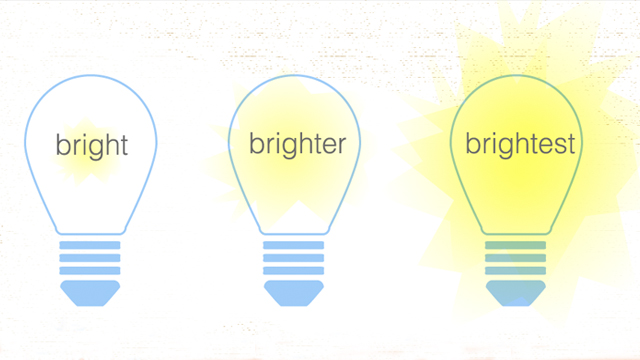“I Spy with Adjectives”
Build students’ skills using adjectives with a twist on the game of “I Spy.” Students will describe classroom objects with adjectives, and their peers will earn points by guessing the objects based on their descriptions.

Students will:
- generate a list of common adjectives;
- use adjectives to describe classroom objects to peers;
- identify classroom objects based on peers’ descriptions.
Standards
- CCSS.ELA-Literacy.L.1.1.F
Use frequently occurring adjectives.
- CCSS.ELA-Literacy.SL.1.4
Describe people, places, things, and events with relevant details, expressing ideas and feelings clearly.
- CCSS.ELA-Literacy.SL.1.1.B
Build on others' talk in conversations by responding to the comments of others through multiple exchanges.
- CCSS.ELA-Literacy.SL.1.4
Materials
- Flocabulary Adjectives video
- Classroom objects
- One piece of paper and pencil per student
Products Created
- Completed “I Spy with Adjectives” game
Time
- One class period
Sequence
- Watch the Flocabulary Adjectives video. As a class, generate a list of adjectives from the song. Students can call out other adjectives they know to add to the list.
- Tell students they are now going to play a version of “I Spy,” using adjectives. Divide students into pairs. Have one student from each pair think of an object from the classroom, like the whiteboard, and keep it secret.
- The student should then describe the object in mind with a single adjective, like “glossy.” Students’ partners should try to guess the object based on this adjective. If they get it wrong, they can ask their partners to provide another adjective and guess again. Students can continue asking for additional adjectives and guessing until they’ve guessed the object. They should then switch roles and continue taking turns being the one who thinks of the object and the one who guesses.
- Students can keep score: they can earn five points for guessing the object with 1-2 adjectives, three points for guessing with 3-4 adjectives, and one point for needing 5+ adjectives. Whichever partner has the most points at the end of three rounds wins.
- At the end of the game, gather the class together again and look at the list of adjectives generated at the beginning of the lesson. Ask students for examples of adjectives they used during the game that are on the list, and cross them off. Add any other adjectives students came up with during the game.
Wrap Up/Extensions
- Create an end-of-year adjective scavenger hunt where the clues are adjectives that describe the objects where students can find subsequent clues.
- Have an “adjective contest.” Name a noun, and give students one minute to write down as many adjectives as possible that describe the noun.
Guided Reflection
- “I used to think _______, and now I think _______.”
- “One thing I learned is __________, and one question I still have is _________.”